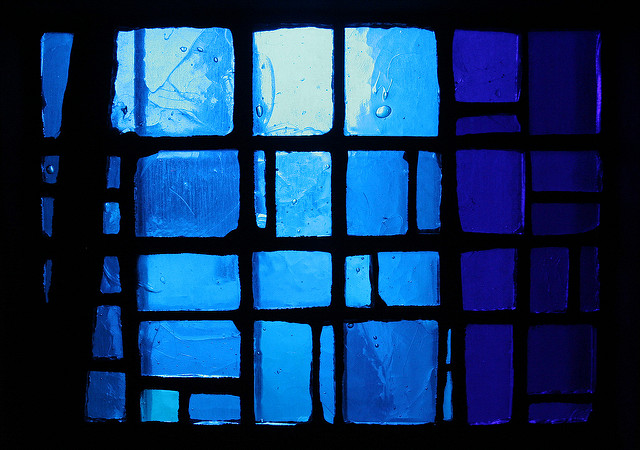
“Most of the time, we are content to cry out ‘fuck!’ as if pinched, but the function of our wall words in slightly more elaborate curses is more complex” (William Gass, On Being Blue 52).
I’m interested in the idea of “wall words.” That may or may not have a connection to blueness beyond the obvious (the obvious being that I encountered it in a book, On Being Blue, that I read for the Blue Class.
Wall words. Words as barriers, obstructions, blockages. It seems on the surface counterintuitive. Language is a means of communication, connection, construction. And yet, as the phrase wall words reminds us, it can also serve the opposite impulse, have the opposite effect. It can create distance. It can obfuscate–that right there is a case in point.
Wall Words. Sometimes we deploy them unaware. Mostly, I suspect, we use them intentionally. We reply them in an attempt to push people away, to thwart intimacy. Gass is particularly interested in curses: “fuck you.” Curses: language weaponized, single usage or repeated almost as a fugue. Crassness, crudity. Language meant to shock, to stun, to wound.
To circle back around to blueness, obscenity and indecency seem to be relevant. Gass finds a certain joie de vivre in his use of obscenity. Some of his more generous reviews read this as a celebration of sexuality. I’m sure that it was such in its day, maybe it is even still. I appreciate the way that Gass is trying to shock us into a different kind of thinking, to open up certain portals of perspective by forcing a confrontation with nakedness–both literally and figuratively. His nakedness is not the typical tasteful nude. There are, of course, no discretely positioned fig leaves or locks of hair. Instead he’s interested in the grit. In the offensive. In the obscene. Or at least what we usually consider obscene.
While his obscenity is, I think, intended to be playful, there is also an edge–a sharp one. His playfulness is aggressive, even violent. And yet, he gives us wall words, in both senses: the concept and its deployment.
And yet. And yet.
"Something there is that doesn't love a wall,
That wants it down. . .
Wall words. That something that doesn’t love a wall, it’s in me. Maybe it’s in most of us somewhere. (It’s pretty much impossible to think about wall words and not think about other kinds of walls in light of the current US government shut down.)
Frost wants us to ask: what are we walling in? What are we walling out?
In the time I spent with Gass over the last several days, I felt distinctly like someone he was walling out even as I wanted to be included in being blue. Who wouldn’t? On Being Blue figures blueness as transcendence; it is inclusive and accommodating. Gass’s lists of blue things have something for everyone. I recognized most of the literary references: Beckett, Pound, Larkin, Joyce, even William Faulkner’s Sanctuary, a deep-cut even for scholar of American modernism. These texts are my home, one of them anyway. But the phallocentrism of the essay (I don’t think he cites a single female author–at least none come to mind), the deployment of crude anatomical references–and the flaunting of their lewdness, the ugliness of the female objectification.
Something there is that doesn't love a wall
That wants it down.
